Opinion
Comrade Jingo at 61 By Johnson Amusan
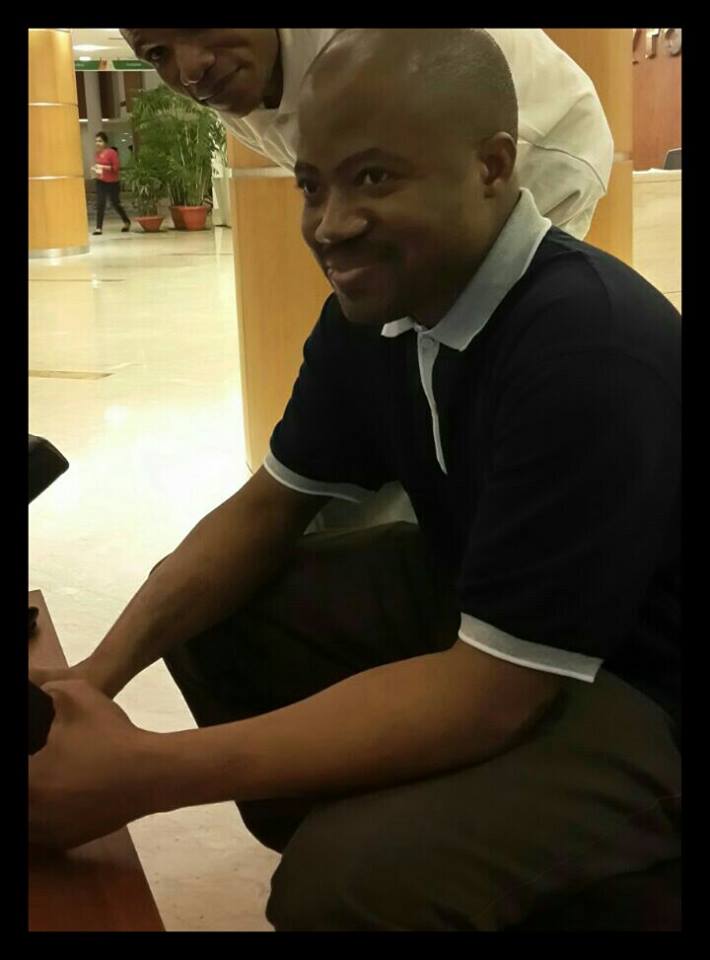
Comrade Jingo at 61
By Johnson Amusan
No man is great who thinks himself so; no man is good who does not strive to seek the comfort and happiness of others. -Woodrow Wilson
Dr Dipo Fashina (more popularly known as Jingo) of the Department of Philosophy, Obafemi Awolowo University (O.A.U), is one man who disavows adulation with passion. He can shower praises upon you but fight you for giving one to him. This is my perception of him. But what has afforded me the opportunity to say this is my closeness to him in recent times. An experience in January last year, will be good here. A few of his lovers contrived secretly to celebrate his 60th birthday. He was to be invited. A big surprise it would have been! The idea of “secret” was because of his indisposition to celebrating his birthday. And that he would do everything within his power to frustrate it if he got wind of anything being organised for him. But his admirers wanted to surprise him. They could not stand not celebrating this man of many facets of shining qualities and deeds anymore. Therefore, an airtight arrangement was made or so it was thought. He was not going to escape it this time. To protect the sanctity of “secrecy”, few individuals were involved. The arrangement was in its final stage when the man bolted out again to Abuja for one of Academic Staff Union of Universities’ (ASUU) meetings. It is still a debate whether he uncovered the plan and deliberately left to sabotage it or it was just a coincidence. That is vintage Jingo.
January 23 this year, Dr. Fashina was 61. To attain 60 let alone 61 is a feat in a country that kills at an unripe age. This is a country that has in stock full dose of frustration – insecurity of lives and properties, decayed economy, dearth of power supply, decomposed health sector, putrid educational sector, appalling roads, famishing poverty, mass unemployment, high mortality rate, and to crown it all, leadership disaster. As a firebrand radical-activist, these outlined evils and more are what he has combated all his life, and to have survived is not a joke. Moreover, he has not stopped fighting them now that many youths have abandoned the struggle for the luxury of life.
Former President Obasanjo, in his sober hour, would never forget in a hurry the person of Dr. Fashina. In his first term, the president’s over-bloated ego was deflated when, despite his intimidations, Dr. Fashina, as ASUU president then, led all lecturers of universities on a strike when Obasanjo’s government reneged on its agreement with the academic body.
Dr. Fashina, a product of Kings College, Lagos, proceeded to continue his education in America and Russia. While abroad he participated in mobilising African-Americans for justice and social equity as a mark of his commitment to Pan-Africanism. Also, for the internationalisation of the liberation of colonial and oppressed peoples in that era, he joined the Eritrean People’s Liberation Front (EPLF) to free the Eritrean people. And by the time he came back to Nigeria,he had not only acquired western education but has become schooled in revolutionary activities. Therefore, when he joined University of Ife (now O.A.U) as a teaching staff, it was not difficult for him to be part of the different ideological and intellectual groups that shaped the live of the university and indeed the struggles of the Nigeria of that time. These groups became the hub around which the wheel of struggle for social justice and equity in this country revolved.
His ideology was (and still is) Marxism – the ideology, which in simple term, embraces socialism and supports the people’s control of the means of production and distribution in a classless society. And this is against the capitalist system that puts the control of production in the hands of the class-privileged, selfish few. He has committed unwaveringly his life to a system which roughly interpreted expects you to love others as yourself as opposed to one which preaches that you love yourself more than others.
Dipo Fashina might not be a religious person, but he keeps to what is even difficult for many religious and political leaders – LOVE, the greatest law in the Holy Scripture. He loves students as he loves the struggle and holds humanity dear to his heart. He acts his sermons and sermonises his acts. He detests injustice and metes it not to another person. He is open-minded and always wants the good of others. He sees your problems as his. And he does not discriminate because you do not have to be a comrade before he associates with you and attends to your problems. He is humble and relates with both young and old on the same frequency. He does not look down on people. He sees the best in people and will always want to bring the best out of them. And he is a man who acknowledges his own wrongdoings and never pretends to be perfect.
I was to learn a lesson from him in 2006. It was one night when we were coming from Ibadan where he went to attend to an assignment at ASUU National secretariat at the University of Ibadan (U.I). At a checkpoint on entering into Ife, a young policeman stopped us and checked the particulars of our vehicle. He had permitted us to go when Dr. Fashina asked him: “young man what else are you doing now?” And the policeman replied: “I am trying to get admission into O.A.U and I don’t know anybody who can help me.” Then Dr. Fashina gave him his departmental address and phone number and asked him to come with all his documents to see what could be done. I was uncomfortable with what he did and expressed my displeasure when we left the checkpoint. I queried why he would want to help a policeman who could be assigned to arrest and detain activists tomorrow. Then he said that it was a way of teaching them that activists were not demons that they had taught them (police) that they were.
Also, one day a student wrote to Fashina to complain that he mistakenly recorded a wrong score for him in a course. Fashina verified the claim and realised that he had a genuine complaint. He did not only correct the error but also wrote back to the student and apologised. That is humility, the hallmark of a good leader.
Should one then not rejoice with such a man? Should he die before one can pay tribute to him? True, I have heard some young people say they do not have any living heroes or role-models because those alive can still derail. One cannot really blame them because this is a country where patriotic heroes are rarely celebrated alive. In an age that vice and not virtue is what many embrace and applaud, rogues and looters of the common purse become the role-models. It is not a rare sight anymore how political buccaneers and ten-percenters are the most garlanded with chieftaincy titles and national honours. But with his consistency on the people’s path Dipo Fashina has shown that to have sworn to the struggle is never to turn back. And he lives everyday of his life as though the struggle for social justice were just starting because there is no end to it at all.
In this age that people cherish sycophancy, how then should one pay tribute to a man who will never ask for it? Then an idea occurred to me. If one cannot celebrate Dr. Dipo Fashina, can one not also celebrate JINGO? Jingo, his sobriquet, reverberates in the minds of many and intellectuals who passed through the Ife mill. However, this sobriquet typifies a philosophy – Jingoism – which is a professorial discourse that a young person cannot undertake except professors themselves.
Maybe in order not to totally offend his sensibility, what to do is not to wish him HAPPY BIRTHDAY AND MANY HAPPY RETURNS in arrears, but to celebrate Jingo – the man who loves and is loved by many for his candour, commitment and loyalty to the cause of the oppressed and the disadvantaged all over the world. Or maybe what to simply say is: Aluta continua, victoria accerta!
This article had been published by The Nation Newspaper on February 11, 2008.


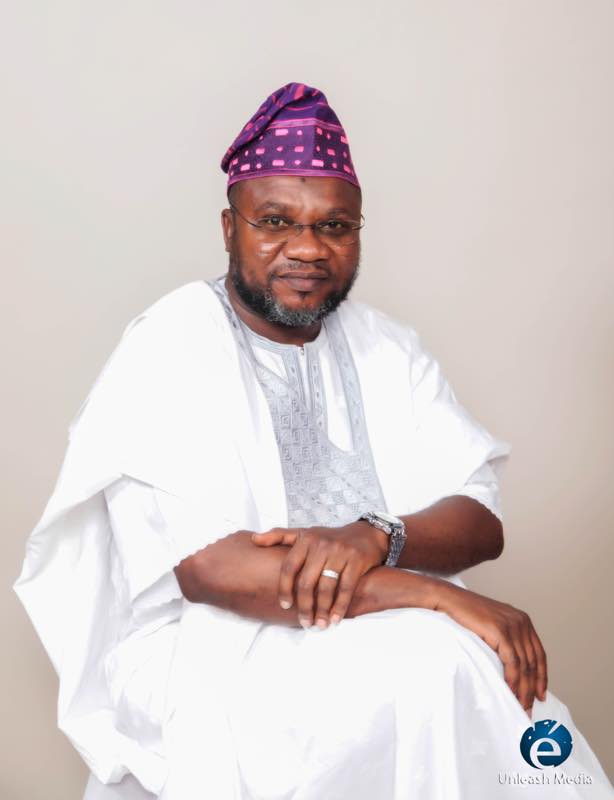
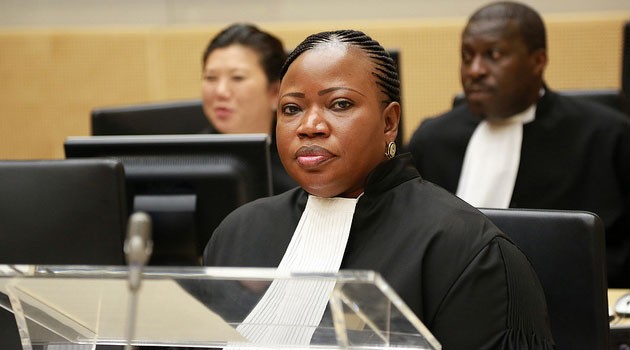




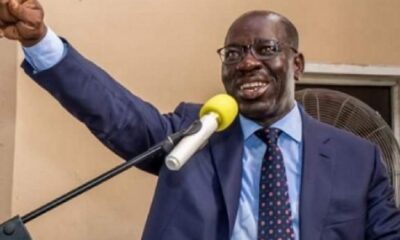

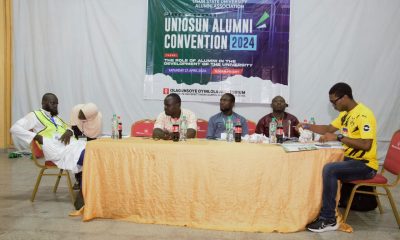

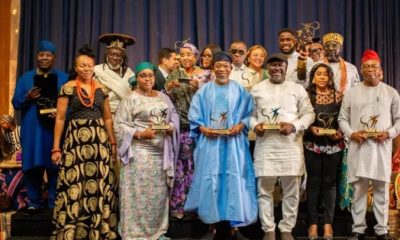

1 Comment